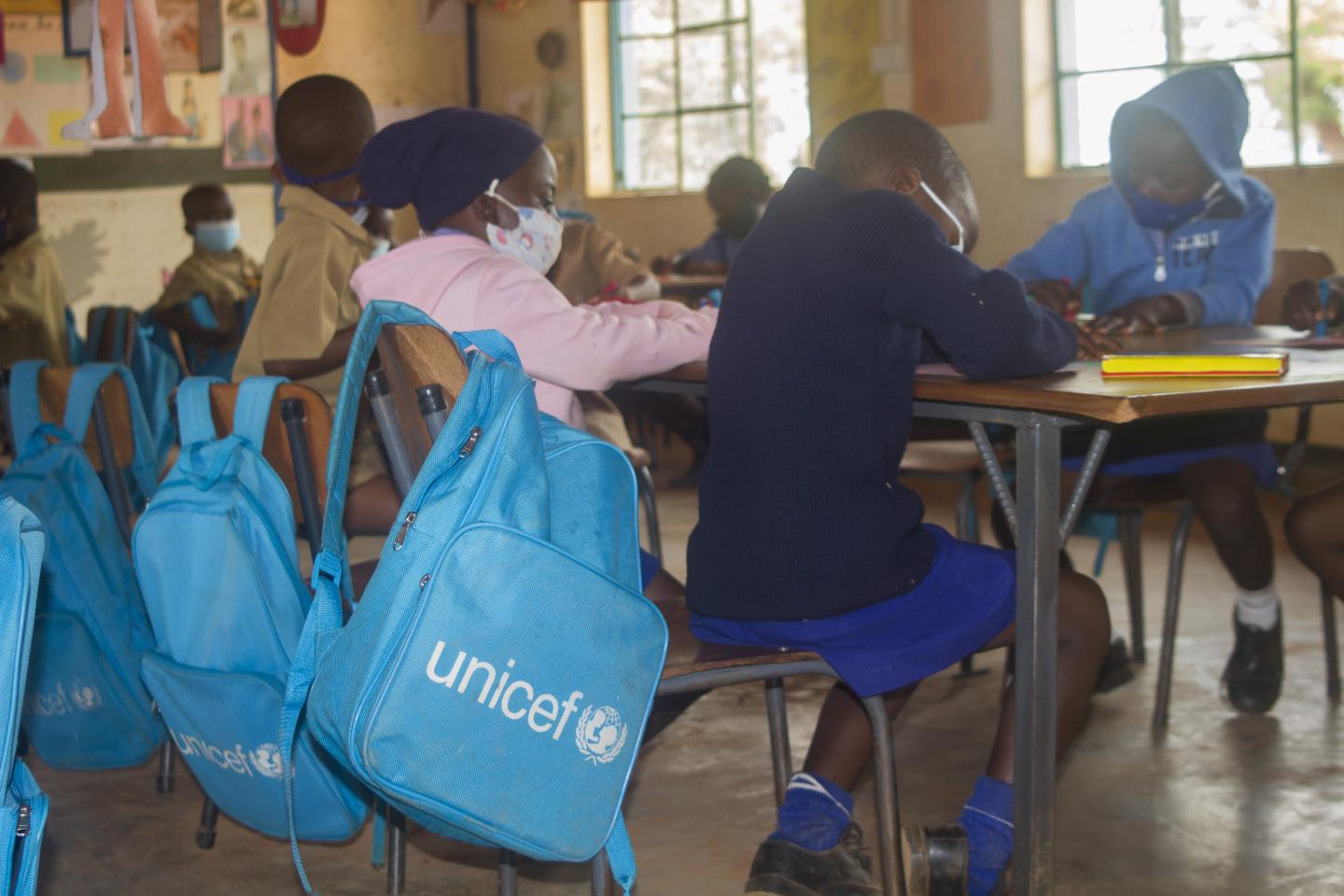YOLANDA Bvute, 12, of Marume Primary School, had become familiar with the uncomfortable sound of other students teasing her on the way to school for the tattered plastic sack she used to carry her stationery.
“I used to walk two kilometres to school, carrying my books in a plastic bag used for bread. The others would mock me the whole way,” she recalls.
Yolanda and her family were left with nothing after Cyclone Idai devastated Zimbabwe’s Manicaland province in March 2019.
Her mother could barely afford Yolanda’s second-hand school uniform, let alone provide school utensils. It was a desperate situation that made her lose all motivation to go to school.
However, one blue backpack delivered under the Zimbabwe Idai Recovery Project (ZIRP) through Unicef, changed this for the better.
“I am very happy that I have this backpack because my mother could not afford to buy one. My bag has given me confidence. I had felt discouraged when the others would laugh at me and the plastic sack I was using. I had even thought about dropping out of school.”
This would have been a blow to the significant strides made in girls’ education. Between 2016 and 2019, over 20 000 more girls were enrolled in primary and secondary school in Manicaland. Cyclone Idai risked reversing these gains.
ZIRP’s provision of teaching and learning materials to cyclone-affected schools proved a game-changer as the tropical storm had disrupted over 43 000 schoolgirls in the region and over 88 000 learners overall.
Yolanda’s school, situated in Buhera District in southeastern Zimbabwe, was among 130 institutions supported by ZIRP to establish temporary learning spaces following the disaster.
Marume Primary received two tents and four ‘School-in-a-Box’ kits. Each kit enables one teacher and up to 40 students to set up a makeshift classroom anywhere. The school also received Early Childhood Development (ECD) kits along with recreation and primary education kits covering subjects such as mathematics, science, and geography.
The Unicef backpacks dubbed the satchels of hope, were a morale booster for the 430 Marume Primary School students, according to deputy headmaster, Thomas Karidza.
“Disaster struck when the Cyclone hit. We had one classroom block destroyed and our enrollment was affected. The welfare of teachers was also affected, including teaching duties. Due to two years of challenges, students began to lose interest in being at school,” said Principal Karidza.
He added: “However, this is no longer the case thanks to the Zimbabwe Idai Recovery Project and Unicef. Our enrollment has increased by 20 percent compared to the cyclone year. Every parent wants to bring their child to the school where they will be given a backpack. The students feel encouraged to come to school.”
Yolanda’s geography teacher, Dzinorevei Taurai, commends ZIRP, the World Bank, and Uniceffor ensuring a conducive learning environment for both learners and their teachers.
“We received teaching materials such as atlas globes, wind vanes, and electric kits. The school did not have the means to provide these items for the students. For the best learning experience, children need to see and use the utensils while executing projects. They learn better through a combination of theory and practice. Now we can provide that thanks to the Zimbabwe Idai Recovery Project,” the educator shares.
As part of the Back-to-School reintegration plan, ZIRP has also provided hygiene kits to cyclone-affected schools in light of the Covid-19 pandemic. The World Bank-funded project continues to assist with the safe return to quality learning for students like Yolanda.
It will be a long road to recovery, but the backpack and school supplies now bring only positive laughter to Yolanda’s life. With the right support, she can achieve her aspirations so that her future children will never know how it feels to lack a backpack. — Unicef








